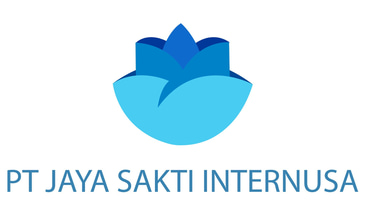The Impact of Water Quality on Cooling Tower Performance and Service Life
The Impact of Water Quality on the Performance and Service Life of Cooling Towers
Cooling towers are the heart of cooling systems in many industries. However, often the main focus is only on the mechanical components, overlooking a crucial factor that can significantly affect performance and service life: water quality.
The water circulating in a cooling tower is not just ordinary water. It continuously evaporates, leaving behind minerals and dissolved solids that, if not properly managed, can cause a variety of serious problems. Understanding and managing water quality through water analysis is key to keeping your cooling tower operating optimally and lasting a long time.
Why is Water Quality so Important?
Poor water quality can trigger three main enemies of cooling towers:
Scaling: Occurs when dissolved minerals (especially calcium and magnesium) precipitate on heat transfer surfaces, forming a hard layer.
Corrosion: Dissolution and destruction of metal materials in cooling tower components and piping systems due to chemical reactions.
Fouling: The accumulation of organic substances (e.g. algae, bacteria) or inorganic substances (e.g. mud, dust) on the surface of the filler and pipes.
These three problems not only reduce heat transfer efficiency, but also increase energy consumption, accelerate component damage, and shorten the service life of the cooling tower.
Key Parameters in Water Analysis
To maintain good water quality, several parameters need to be closely monitored:
Total Dissolved Solids (TDS)
What it is: The total amount of dissolved solids (minerals, salts, metals, etc.) in water. When water evaporates in a cooling tower, TDS becomes concentrated.
Impact: High TDS increases the potential for scaling and corrosion, and can reduce heat transfer efficiency. Monitoring TDS is important for determining the appropriate blowdown schedule.
Langelier Saturation Index (LSI)
What it is: An index that predicts whether water is likely to form scale (scaling) or be corrosive.
Positive LSI: Water is likely to form scale.
Negative LSI: Water is likely to be corrosive.
LSI zero or close to zero: Water is in equilibrium.
Impact: Understanding LSI is crucial for determining the appropriate type of chemical treatment. The goal is to keep the LSI close to zero to minimise scaling and corrosion.
Water pH
What it is: A measure of the acidity or alkalinity of water.
Impact: Low (acidic) pH is highly corrosive. pH that is too high (alkaline) can trigger scaling. Maintaining a stable pH within the optimal range is very important.
Chloride and Sulphate Content
What it is: These ions can accelerate the rate of corrosion, especially in certain metals.
Impact: High concentration levels require special attention in your water treatment programme.
The Role of Effective Water Treatment
With an understanding of water analysis, you can design the right water treatment programme. PT Jaya Sakti Internusa offers comprehensive solutions, ranging from:
Chemical Treatment: Using scale inhibitors, corrosion inhibitors, and biocides to control scaling, corrosion, and microorganism growth.
Filtration: Using Side Stream Filters or Carbon Prefilter Sand to remove suspended particles.
Advanced Water Treatment: Such as Reverse Osmosis (RO) to significantly reduce TDS, so that the feed water to the cooling tower is cleaner and minimises problems.
Real-time Monitoring System: With advanced controllers that monitor water parameters and provide early warnings to prevent problems before they occur.
Conclusion
Water quality is an investment, not just an operational cost. By monitoring key parameters and implementing an effective water treatment programme, you can not only improve heat transfer efficiency and save energy, but also significantly extend the service life of your cooling tower.
Don't let poor water quality damage your valuable assets. Contact PT Jaya Sakti Internusa for a water analysis consultation and the right water treatment solution for your cooling tower.
